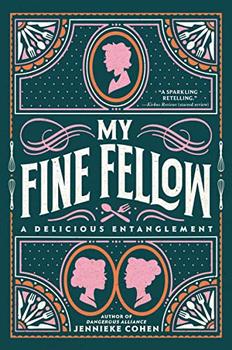Summary | Excerpt | Reviews | Beyond the book | Read-Alikes | Genres & Themes | Author Bio

This delightfully enchanting book is perfect for nestling in to a comfortable chair with. With its engrossing story, gritty Victorian London setting and endearing characters, the hours will fly by unnoticed by those who turn its pages.
Splendors and Glooms offers 21st century children a peek into a time and place vastly different from their own. Meticulous attention to detail captures two vastly different worlds of 1860s Dickensian London, one characterized by heavy drapes and groaning sideboards, the other by rumbling stomachs and hearths barely lit.
We first meet Cassandra, an old and ailing witch whose death looms close at hand. Her powers grow weaker yet the source of them, the fire opal encased in a filigree locket that hangs from a gold chain around her neck, burns hot with vibrating strength. She lies in her bed in Venice, with no friends or family to comfort her. Attended to by servants, her days and nights are filled with dreams that combine a glimpse of what is to come with recollections of what has come before. One thing is certain though: she must be freed of the fire opal. Its powerful force has served her all these years but her ability to harness and control it is lessening and soon, it will overpower her.
Cassandra dreams of Grisini, a magician who crossed her path many years before and unsuccessfully tried to possess the fire opal. Now, after all this time he is appearing in her visions, not as the young man he was, but as he must look today: "Cassandra dragged her fingers through her matted hair, Grisini had been in her dream; that was why she seemed to hear his voice. She had dreamed of a dark city, a labyrinth of steep houses half drowned in fog: London she supposed. Grisini had been there, smiling at her through the gloom." In the dreams, Grisini is not alone. There are three small shadowy figures next to him. Why are they there, Cassandra wonders. Is it possible that these visions are a truth sighting? Does Grisini have the key to releasing the fire opal's hold on her?
Grisini is in fact living in London, a master marionette performer billed as "The Phenomenal Professor Grisini and His Venetian Fantoccini." Two orphans are in his charge: Parsefall, 11, taken from a workhouse (see 'Beyond the Book') five years ago as an apprentice and Lizzie Rose, 14, taken in after the death of her actor parents two years prior. Life is hard for his two wards - there is barely enough to eat and Grisini is manipulatively conniving, threatening and cruel in his treatment of them.
Parsefall is small for his age and terribly thin, but adept at working the puppets. He is missing the little finger on his right hand. There is no scar or lingering pain from its absence. He is sure that it was once there, yet has no recollection of how it was lost.
While Parsefall knows only of hardship, Lizzie Rose has vivid memories of being loved and cherished by her parents. She still wears the dresses her mother made for her, though they've grown ragged and too small. She is resigned to laboring for Grisini's, for now, but longs for the day when she will be free of him.
The puppet shows usually take place in London parks. Clara, daughter of Dr and Mrs. Wintermute, is so captivated by one of these performances she sees that she begs her parents to hire Grisini to perform for the guests at her twelfth birthday party.
Clara is the remaining survivor of five siblings, the others having died during a cholera outbreak years ago. Though she lives in a luxurious house, filled with beautiful things, it is a home leaden with profound grief and mourning. Clara is burdened by the responsibility of being the lone child who remains. She longs to be free of grief's tethers, to dance like the ballerina in Grisini's show.
The morning after her birthday party, Clara is gone. Has she run away? Been kidnapped? Her parents are distraught with panic and the police are called. Grisini is immediately suspected as being involved. The police come to speak to him and to search the two rooms he lets from the widow, Mrs. Pinchbeck, who is a long-time acquaintance of Grisini's from her days in the theater.
Grisini offers no resistance to the police request, warmly telling them that the girl is not there but to look around for themselves. Both Lizzie Rose and Parsefall are clueless as to her whereabouts as well.
With the policemen finally gone, Lizzie Rose goes to speak to Mrs. Pinchbeck. Funny, she tells the girl, a child went missing many years ago after a performance at the theater, and the authorities had suspected Grisini. But the boy ultimately returned home, though he was never the same.
Meanwhile:
Clara slept. Never in her life had she known so dense a sleep: a sleep without dreaming, without the slightest twitch of finger or eyelid. She was as lifelike as a pressed flower. If she had been awake, she could not have said whether her eyes were open or shut. Her mind was empty, freed from guilt and terror and grief. Only the night before, she had spoken of her fear of cold and darkness; now darkness and cold claimed her, and she was not afraid.
And so the stories of Clara and Cassandra, Lizzie Rose and Parsefall begin to weave together. Though different from each other in many ways, there are two experiences they have in common: loss and abandonment.
Splendor and Glooms offers rich material to ponder regarding the value of material wealth when one feels unloved and uncherished. As well, it explores the idea that while we may not always be able to control where the road of life takes us, we can control our how we walk upon it.
At 384 pages, Splendors and Glooms is a meaty-sized book but short chapters make the journey more than comfortable. It is a magical adventure for both readers and young listeners alike to enjoy.
![]() This review was originally published in The BookBrowse Review in November 2012, and has been updated for the
March 2014 edition.
Click here to go to this issue.
This review was originally published in The BookBrowse Review in November 2012, and has been updated for the
March 2014 edition.
Click here to go to this issue.

If you liked Splendors and Glooms, try these:

by Jennieke Cohen
Published 2023
Culinary delights abound, romance lingers in the air, and plans go terribly, wonderfully astray in this gender-bent take on My Fair Lady from Jennieke Cohen, author of Dangerous Alliance - perfect for fans of Bridgerton or A Gentleman's Guide to Vice and Virtue.

by Brian Selznick
Published 2011
Playing with the form he created in his trailblazing debut novel, The Invention of Hugo Cabret, Brian Selznick once again sails into uncharted territory and takes readers on an awe-inspiring journey.
Your guide toexceptional books
BookBrowse seeks out and recommends the best in contemporary fiction and nonfiction—books that not only engage and entertain but also deepen our understanding of ourselves and the world around us.